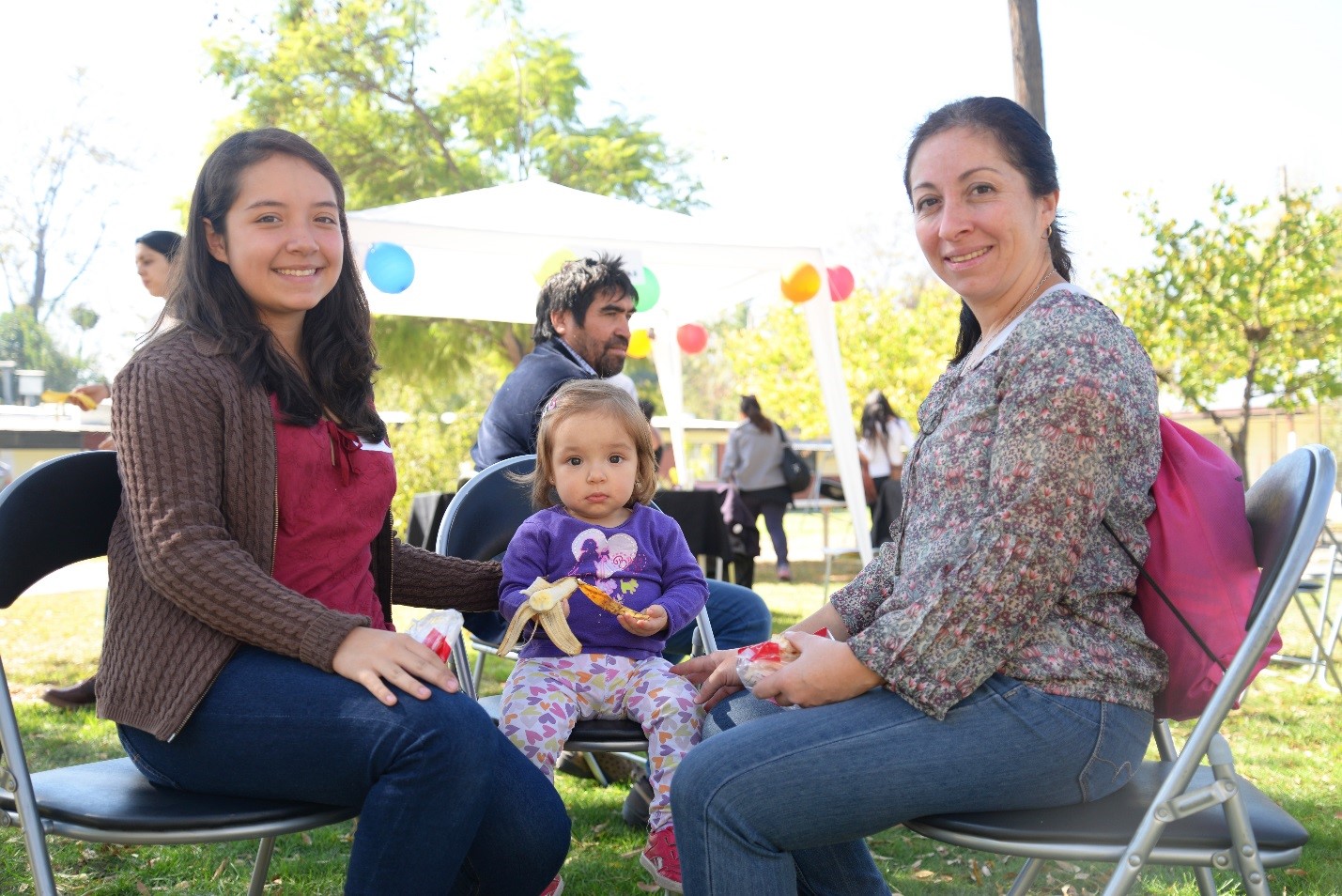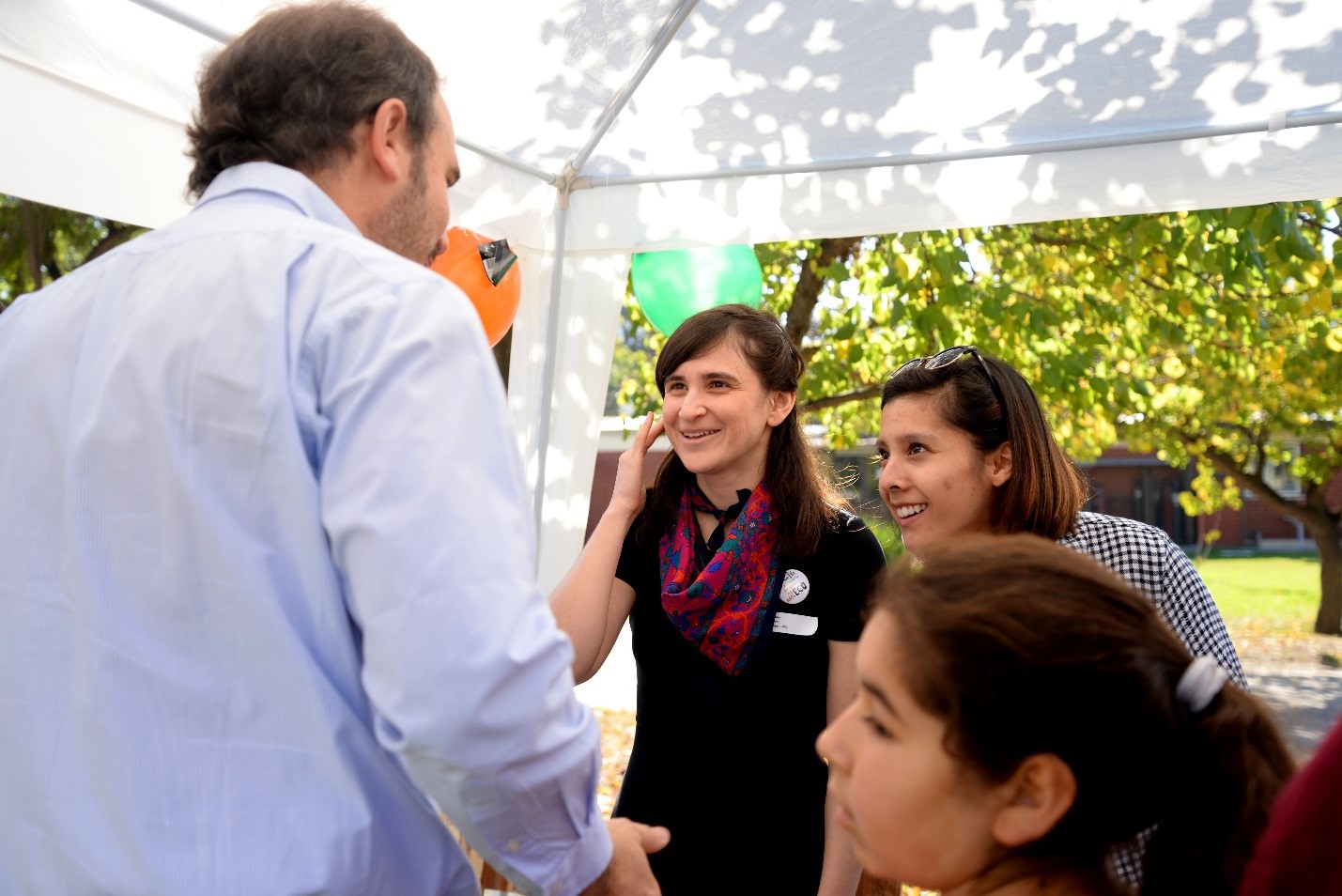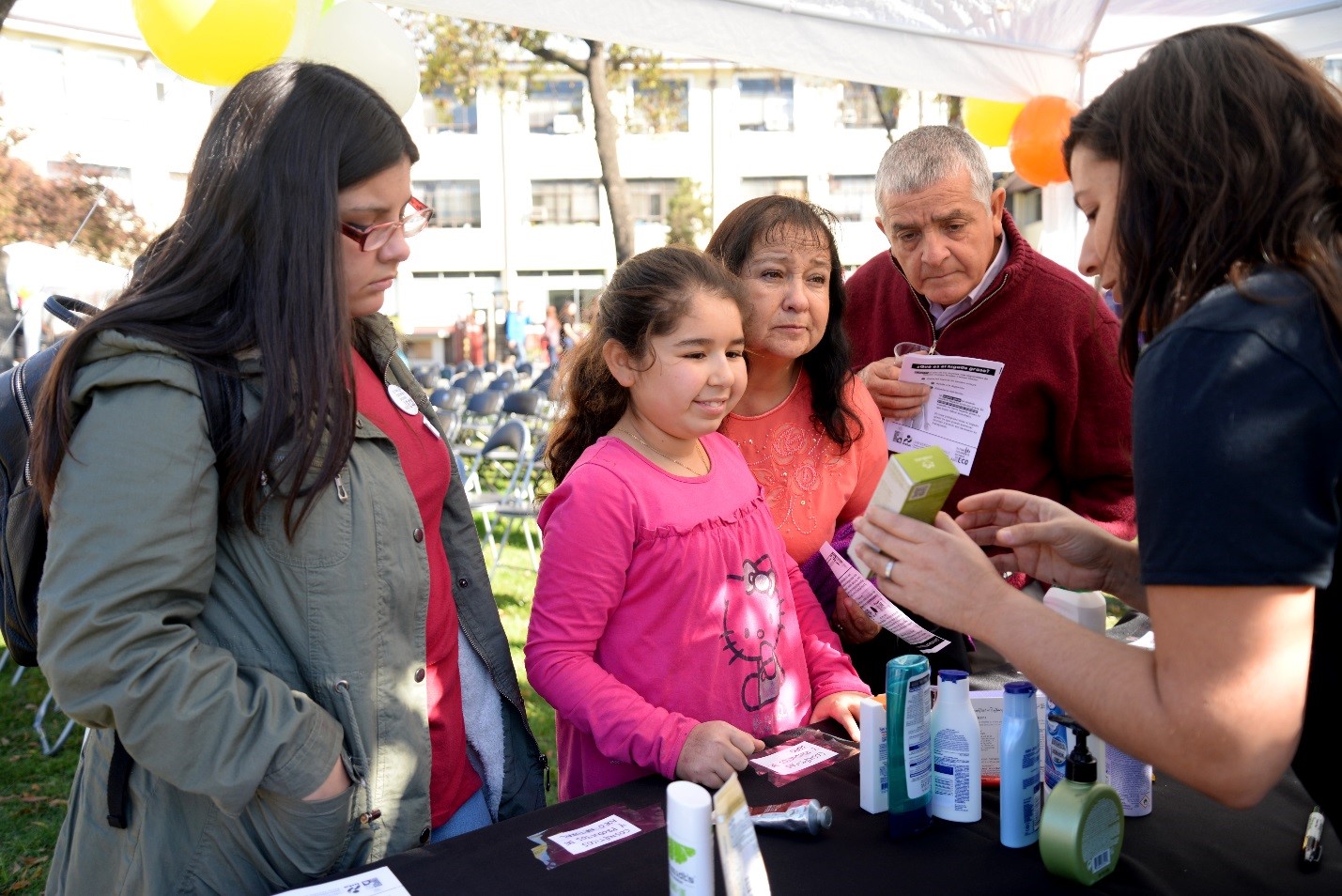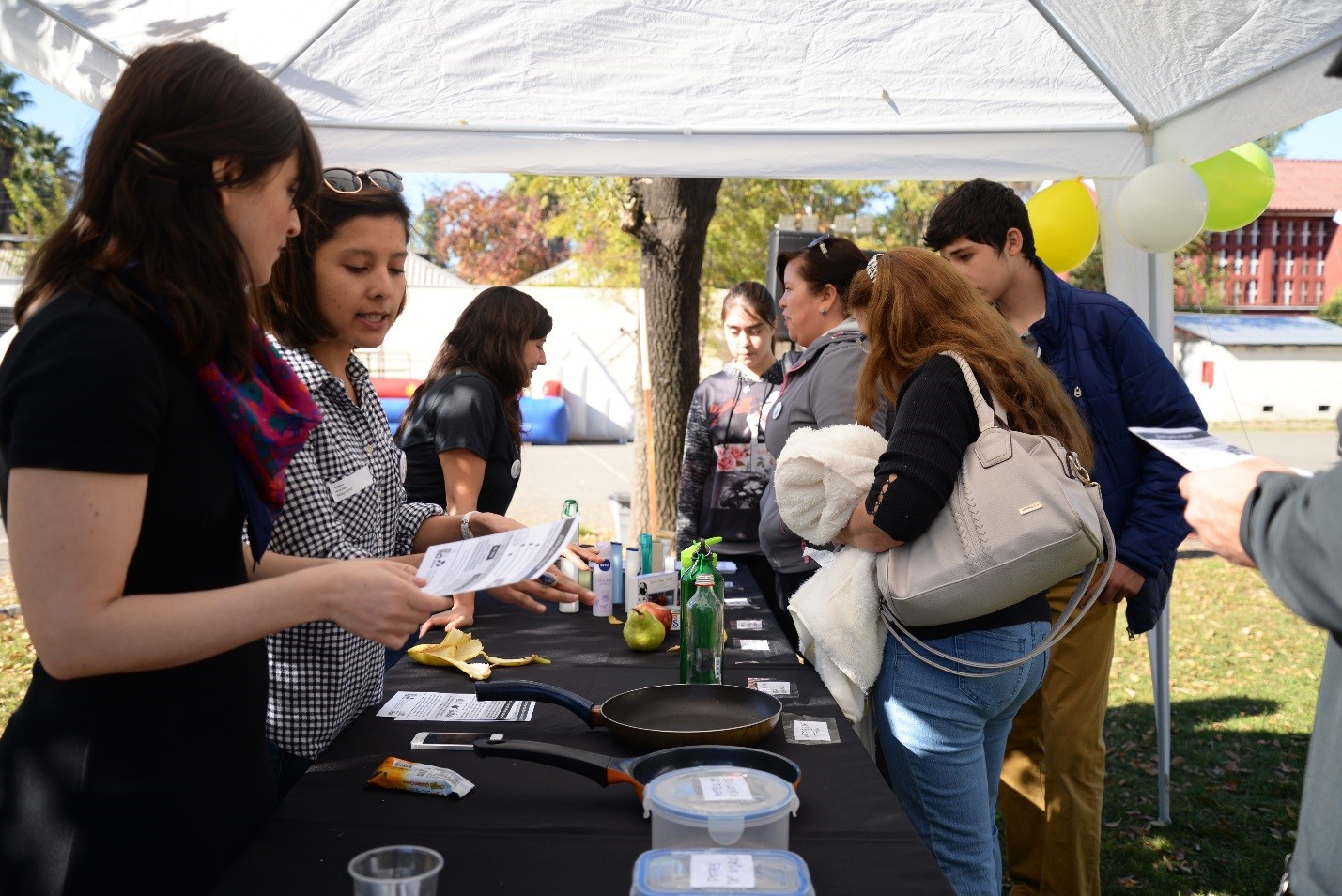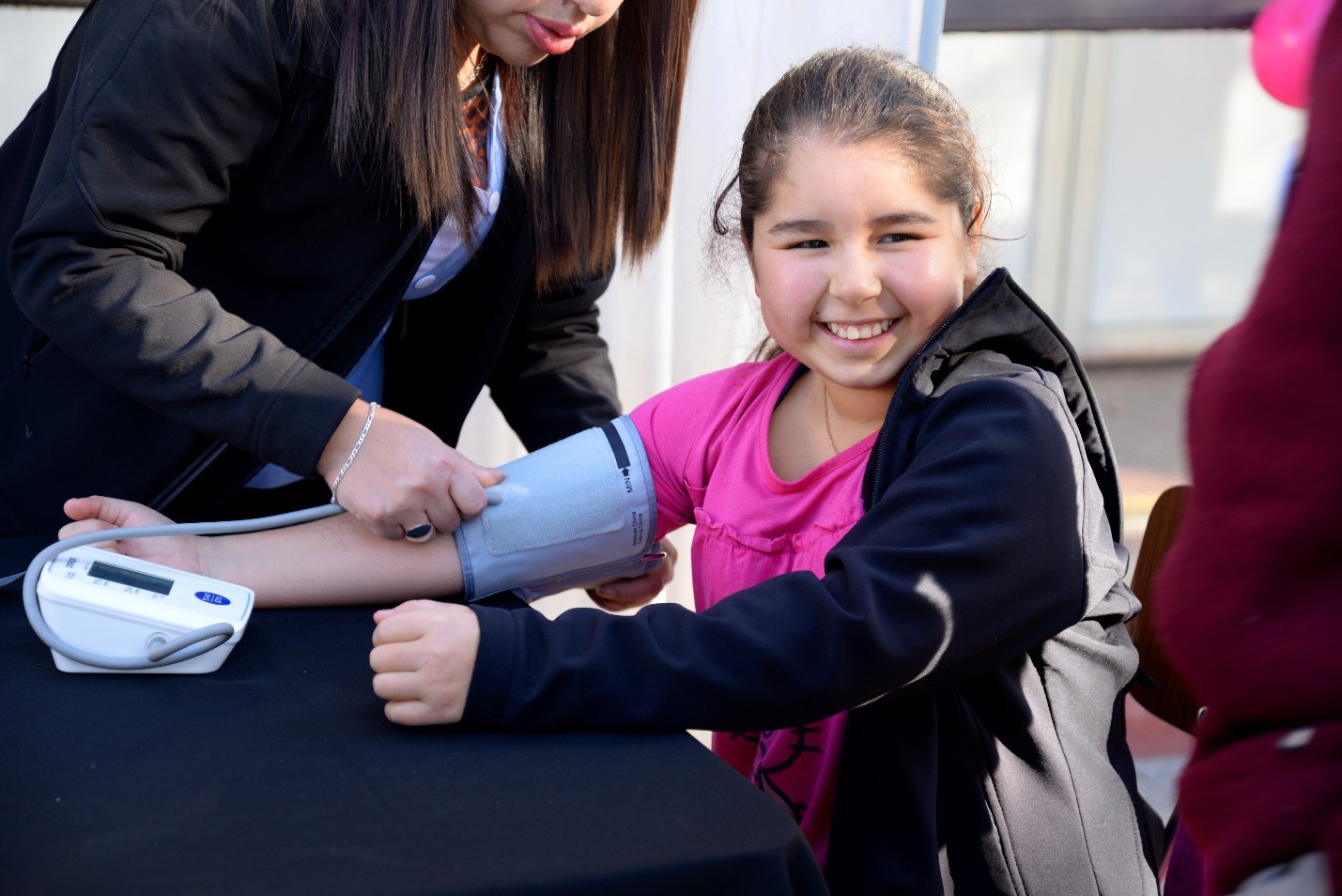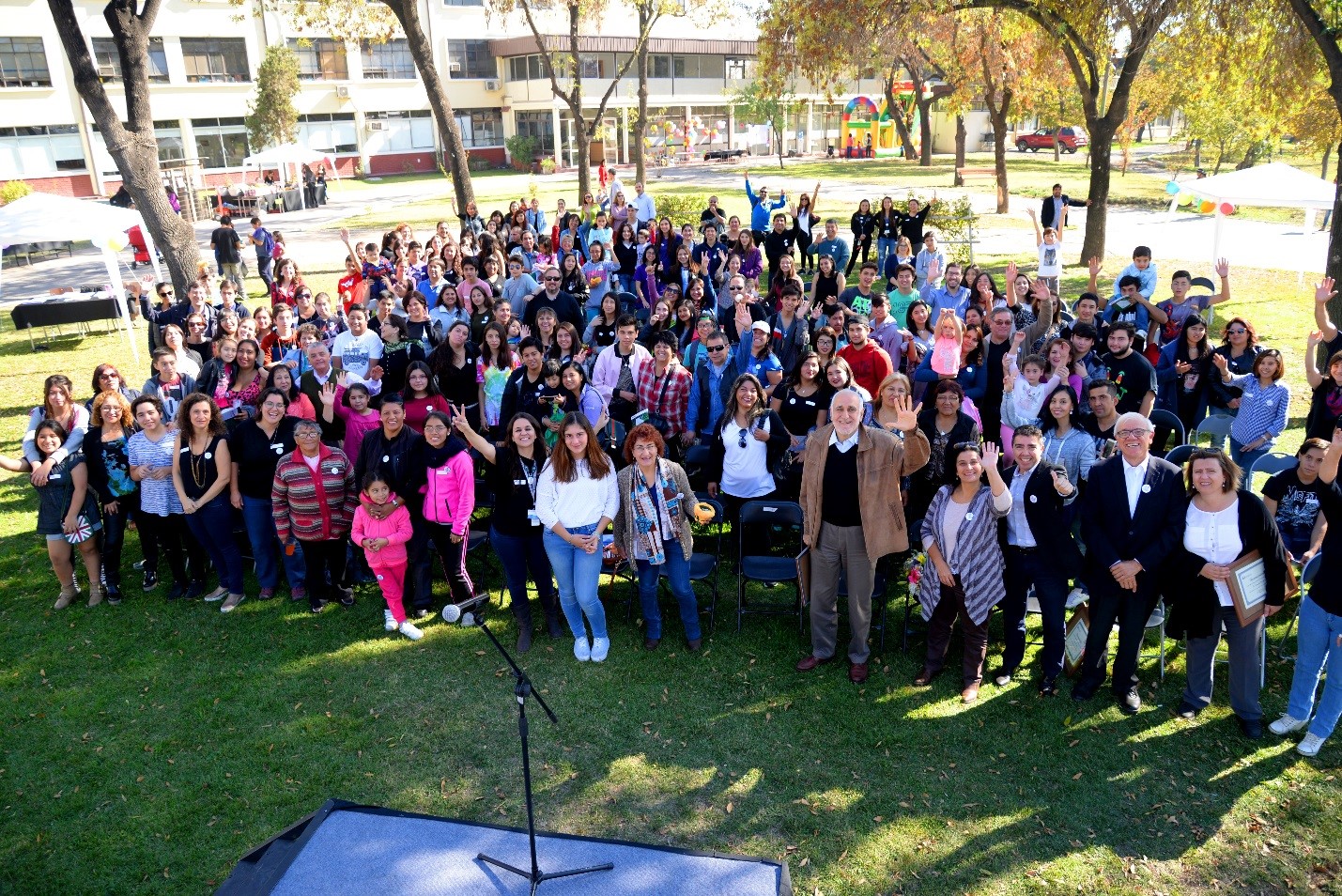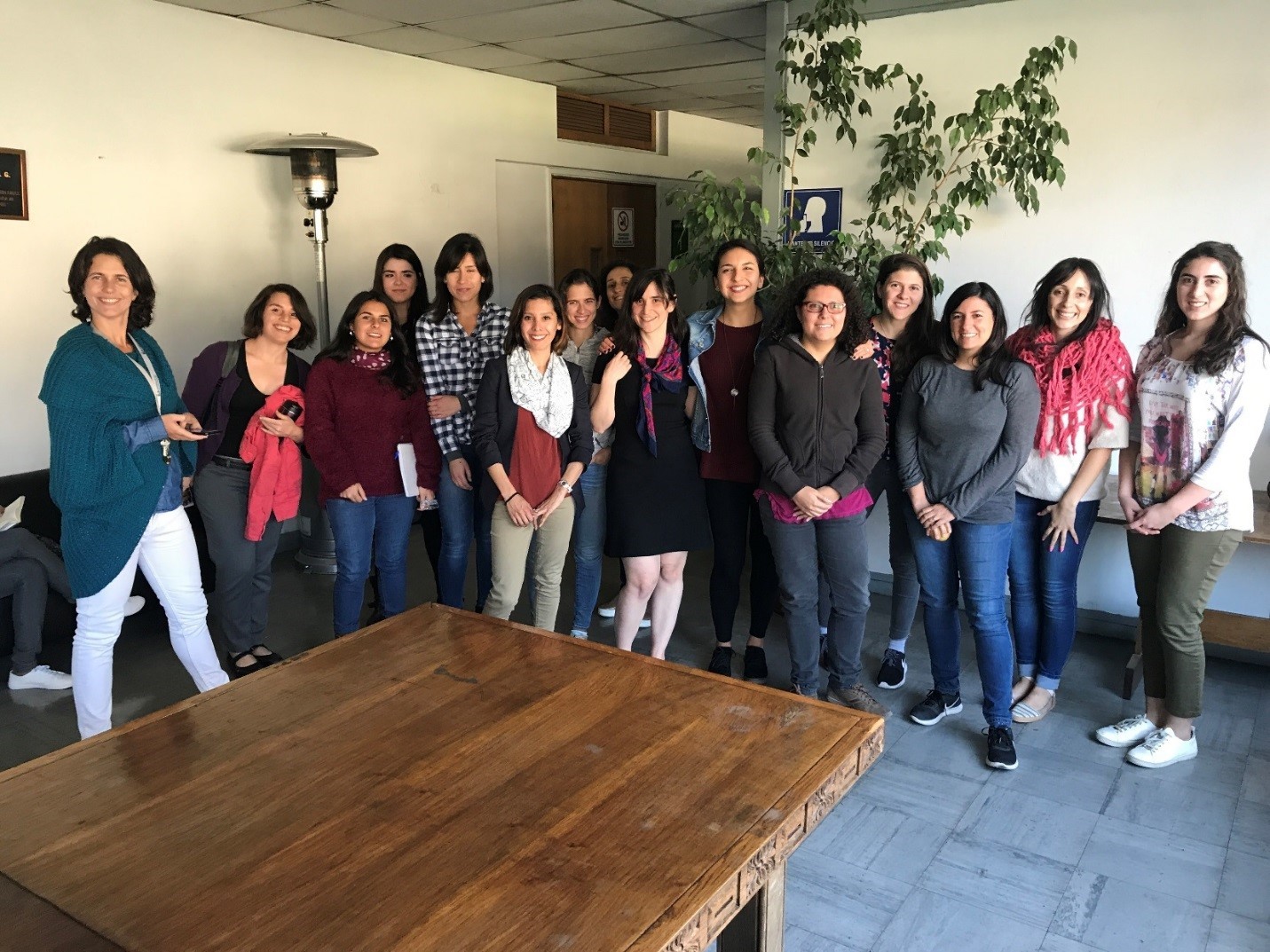
As evidence suggests the seeds of breast cancer may be sown early in life, the Early Life exposures in Latina Adolescents (ELLA) study hopes to find out whether exposure to common environmental chemicals during puberty increases breast cancer risk later in life. To do this, the ELLA study builds on an existing study involving 500 girls in Santiago, creating new partnerships between researchers in the U.S. and Chile. Postdoctoral fellows Vanessa De La Rosa and Jennie Liss Ohayon, jointly at Silent Spring Institute and the Social Science Environmental Health Research Institute (SSEHRI) at Northeastern University, took a trip to Chile this spring to work with our ELLA project partners at the University of Chile, Santiago. Here’s their account of the visit:
We arrived in Santiago on April 25, with a packed schedule for the week, including many opportunities to meet with our project partners, study participants and their families.
Our collaborators in Santiago are based in the Instituto de Nutrición y Tecnología de los Alimentos (INTA). The institute, which is affiliated with the University of Chile, Santiago, is focused on nutrition and public health research. In 2006, INTA recruited a group of 1,995 children aged 2 to 4 from low- to middle-income households in Santiago to participate in the Growth and Obesity Chilean Cohort Study (GOCS). More than 10 years later, almost 85 percent of these youth are still actively participating in GOCS and the research has expanded beyond nutrition to include genetics and body development, factors influencing substance abuse among teenagers, fatty liver disease, and most recently, the influence of hormone disrupting chemicals on breast cancer risk through the ELLA study.
This was our first visit to INTA. We toured the clinics and labs, and met with the approximately 40 staff of dedicated researchers that work on the different projects within GOCS. It was particularly wonderful to observe the clinic visits and meet the girls and families who have contributed so much of their time to public health research. These girls have been visiting the clinics on a regular basis for most of their lives, donating urine and blood samples, having growth measurements taken, and answering survey questions. Participating in research has become an integral part of their lives and, while we were there, we witnessed how this has allowed many of them to forge a strong sense of community.
We gave presentations on Silent Spring’s breast cancer prevention research, specifically on two new tools we have developed to engage study participants and their families in environmental health research. The first is our mobile app called Detox Me that offers simple research-based tips on reducing everyday exposures to toxics. The second is our digital report-back tool called DERBI, which allows us to generate personalized web-based reports for sharing environmental exposure data with study participants. As part of our ELLA study, participants will be able to access their chemical exposure results through a smartphone version of DERBI.
Focus groups conducted at INTA reveal there is little community awareness of the links between health and environmental exposures. However, we hope to change that through this new collaboration. Our research has shown that sharing environmental exposure results with study participants can improve their environmental health literacy and empower them to take actions to reduce their toxic exposures. We are also exploring multiple ways that we can support the INTA staff, including designing informational packets to help nutritionists communicate environmental health information to participants during clinic visits.
ELLA is one of the first projects in South America to study exposure to endocrine disruptors and breast cancer, and so it provides a great opportunity to create community engagement and inform regulatory action around toxic chemicals in products. While we talked a lot about supporting communities in reducing their exposures, we also had many discussions with the staff about the importance of chemical safety regulations. Our Chilean collaborators struggle (like us!) with inadequate regulations to protect individuals from harmful chemicals. Interestingly, a majority of common personal care products in Chile are imported from the U.S., reinforcing the notion that changes in chemical policy here in the U.S. can have a global impact.
We also had many discussions about the use of fragrances in products and how to challenge people’s associations of synthetic fragrances with the idea of cleanliness. In Chile, just like in the U.S., there is a large reliance on artificially-scented products, such as perfumes, candles, and air fresheners. Far from being “clean”, a single fragranced product might contain as many as 300 different chemicals, many of which are respiratory and skin irritants, allergy triggers, and endocrine disruptors. Companies aren’t required to disclose what chemicals they are—labels will often just list “fragrance” or “parfum” instead. Addressing the reliance on artificially-scented products will be an important focus of our outreach.
Our visit to INTA culminated with the 10-year anniversary celebration for the GOCS cohort. It was a milestone event full of awards and speeches honoring investigators, participants, and their families. There was music, Zumba (we won’t post any pictures of us doing that!), games for the participants, and informational tables. We set up a table on endocrine disrupting chemicals, and we demonstrated the Detox Me app, which we recently released in Spanish.
Although our work in Chile kept us very busy, we did manage to find time to unwind with empanadas and wine, and despite it being almost winter in South America, enjoy the beautiful balmy weather—a stark contrast to the snow-capped Andes surrounding the city. We learned how to navigate Santiago’s extensive public transit network, had a crash course in Chilean Spanish, and experienced firsthand the infamous smog that overhangs the city. Despite legislation to decrease air pollution, past incidences of severe smog have led the government to declare multiple states of emergency, restricting vehicle traffic, temporarily closing businesses, and halting sporting events
Getting the chance to interact with our Chilean collaborators, the participants, and their families was enormously informative and inspiring. We want to thank Camila Corvalan, Nancy Josefina Casas Centeno, and all the GOCS research team at INTA for hosting us in Santiago and for organizing a wonderful anniversary celebration. Thank you to the Silent Spring Institute, the Breast Cancer and the Environment Research Program (BCERP), and the Social Science Environmental Health Research Institute (SSEHRI) at Northeastern University for their continued support of this collaboration and our trip.
